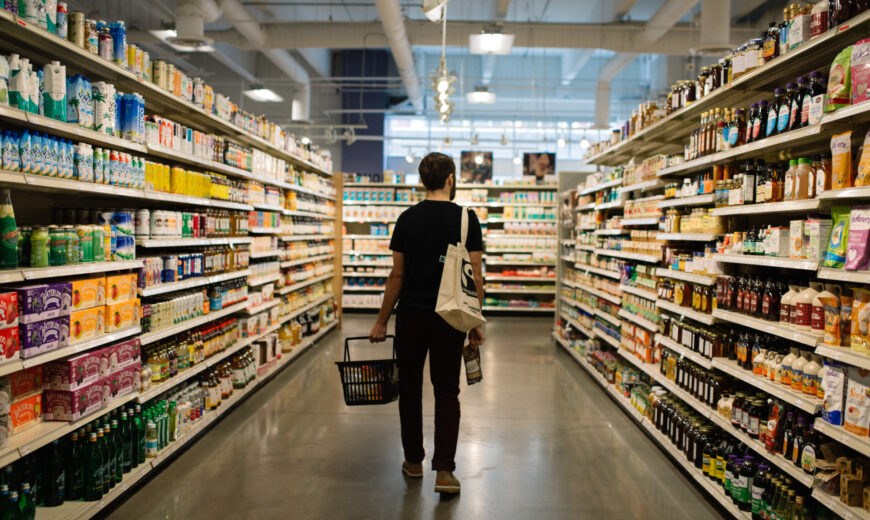Contact the communications team
E-Mail: press@fairtrade.net
23 Jun 2021

Nearly nine in ten people who recognize the Fairtrade label trust it, compared with much lower trust in companies’ self-reported sustainability performance.
Nairobi, Kenya – People are paying more attention than ever to the conditions behind the products they buy as a way to make a difference in the world, according to new research findings released by GlobeScan and Fairtrade International today.
Conducted by GlobeScan in 15 countries and reaching more than 15,000 people, the consumer survey points to everyday shopping choices as an increasingly important way for people to express their values, with the Fairtrade sustainability label serving as a clear signal of trustworthiness.
Visibility of ethical and environmental labels remains high, with 76 percent of respondents saying that they’ve seen these types of labels. Fairtrade is the most recognized and trusted label – nearly seven in ten people have seen it, and of these, nearly nine in ten of them trust the label. Public opinion research conducted by GlobeScan in 2020 shows that only around half of respondents say they trust companies’ communications about their own social and environmental performance.
Shoppers’ ethical priorities cover a range of social and environmental commitments. When asked what issues are most motivating for people when choosing what to buy, ensuring no child labour was the top issue, followed by safe products, reducing poverty for farmers and workers, and protecting against deforestation. Sixty-four percent of those who recognized the Fairtrade label said they were willing to pay more for a product to ensure producers are paid a fair price.
This is borne out by GlobeScan’s public opinion research showing that fair wages, fair employee treatment, and protecting the environment are among consumers’ top expectations of companies. Overall, GlobeScan has seen significant increases in the public’s expectations of companies to act responsibly, with attitudes intensifying during the COVID-19 pandemic. More than half of respondents say they have changed their purchasing choices within the past year to make a difference on an economic, social, environmental, or political issue, even more than those who voted or donated money – indicating that people increasingly see their everyday shopping as an important way to make a difference.
In the Fairtrade-GlobeScan consumer research study, more than seven in ten feel that by buying Fairtrade, they are standing together with the farmers and producers who grow our food. Nearly seven in ten feel that they are part of a community standing up for fairness and justice when they buy Fairtrade. And the label has a halo effect on brands, with 78 percent of those who have seen the Mark saying it has a positive impact on the brands that carry it.
Demographically, younger people (aged 18–34) are more likely than older generations to recognize ethical and environmental labels, at around 85 percent, according to the Fairtrade-GlobeScan consumer research survey. This group is also slightly more likely to report buying one or more Fairtrade products per month than their older counterparts.
“Around the world, consumers are increasingly acting on their values and displaying an openness to paying a little more for products that are ethically and sustainably produced, especially when it comes to tackling poverty and unjust labour conditions,” said Dr. Nyagoy Nyong’o, Fairtrade International’s Global CEO.
“At the same time, Fairtrade farmers and workers are doing their part, for instance by improving farming methods, adapting to climate change, and expanding positive opportunities for women and young people,” Dr. Nyong’o added. “That’s why everyone who chooses Fairtrade is making a commitment to join with farmers and workers to create the fairer, more sustainable world that we all want.”
The latest research was shared as part of Fairtrade International’s General Assembly, taking place this week in Nairobi. This annual meeting brings together equal representation of Fairtrade producers and national organizations to decide on membership issues, approve the annual accounts, and ratify new board members.
“GlobeScan has been tracking ethical consumer trends for more than 20 years and we have recently seen significant increases in people wanting to make more socially and environmentally responsible shopping choices. But we know that behaviour lags attitudes, so ethical labels like Fairtrade can be valuable trusted guides for busy shoppers,” said Caroline Holme, Senior Director at GlobeScan.
E-Mail: press@fairtrade.net